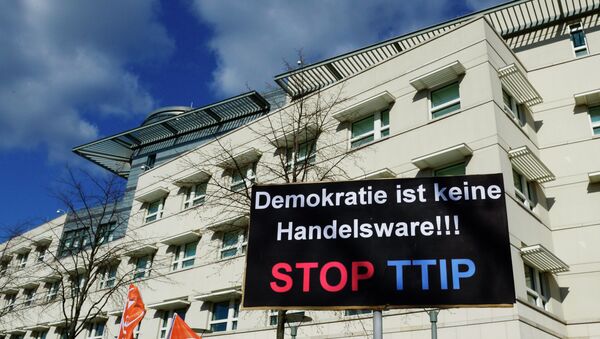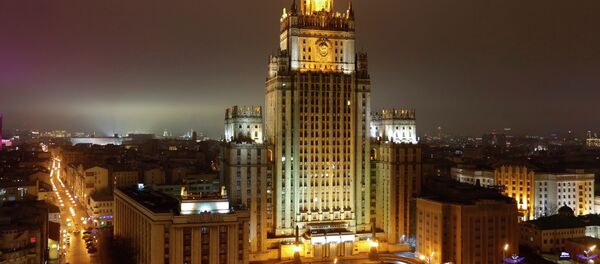WASHINGTON (Sputnik) — The TTIP agreement seeks to liberalize trade between the United States and Europe and create the world's largest trade zone, encompassing more than 60 percent of global production.
"Many Europeans dislike the US brand of capitalism, especially the 'winner-take-all' flavor for those at the top and the 'help yourself' recommendation for those at the bottom," Hufbauer said on Wednesday. "They fear, wrongly, that TTIP will lead Europe to adopt the US economic model."
The eleventh round of TTIP talks is set to take place from October 19 to 23 in Miami, Florida, during which negotiators are expected to largely focus on peak tariffs related to garments, specialty chemicals and agricultural products, Hufbauer explained.
TTIP has stirred controversy around the world, with opponents saying it has been negotiated in secret and undermines environmental, health, safety and labor standards, while proponents argue it will spur economic growth.
On Saturday, about 100,000 people rallied in Berlin, Germany to protest the TTIP free trade pact.
Gary Hufbauer is a Senior Fellow with the Peterson Institute for International Economics. Previously, he served as US Treasury Deputy Assistant Secretary for International Trade and Investment Policy.



